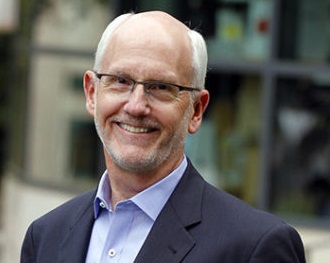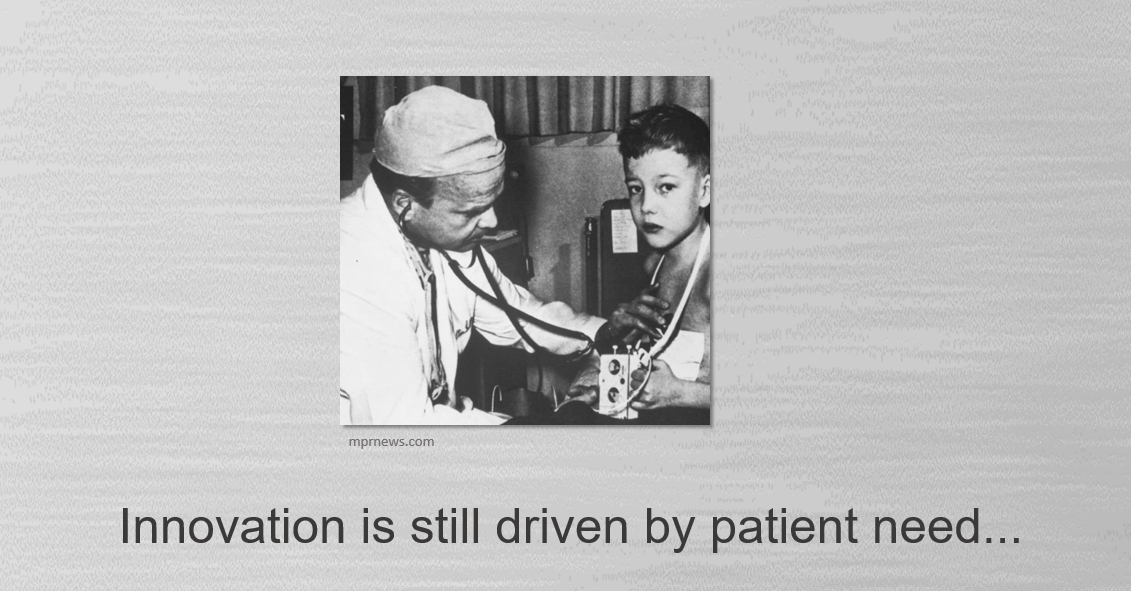STS 2021, Day 1 — As the STS Annual Meeting commences with the theme “Embracing Innovation,” the C. Walton Lillehei Lecture and Shark Tank innovation session will give participants insight into how the best inventions can make it to the forefront of patient care.
Honored lecturer Paul G. Yock, MD, MA, will encourage participants to view innovation as a discipline—one that can be taught, practiced, and recreated. The founder and director of the Stanford Byers Center for Biodesign, Dr. Yock will explain how this philosophy is put into practice.
“Biodesign is based on the idea that there is a repeatable process that improves the odds that your invention will actually reach patients,” said Dr. Yock, the Martha Meier Weiland Professor in the School of Medicine, professor of bioengineering and, by courtesy, of mechanical engineering at Stanford University in California.

Comprehensive innovation starts with working to develop a deep understanding of the user’s needs, as is applied in the “design thinking” realm. But applying this methodology in the health care setting is difficult because it involves getting through to multiple stakeholders. Dr. Yock likens the “user” in this scenario to an “eight-headed monster.” In addition to the physician and patient, innovators must reach hospitals, insurance companies and other reimbursement sources, lawmakers, regulators, and the press.
To manage this complexity, the biodesign process utilizes overarching principles of “identify,” “invent,” and “implement,” which, like design thinking, places the invention step in the middle, Dr. Yock explained. “But the heavy emphasis is up front—needs finding and needs screening.”

Graduate and post-graduate courses and project grants offered by the biodesign program at Stanford give students and inventors the opportunity to evaluate real-world medical needs, invent new health technology products to address those needs, and make the technology accessible in real-world clinical settings.
Biodesign students are organized into small teams that heavily emphasize a multidisciplinary approach. In one course, for example, this year’s four-person team included an interventional radiologist, a mechanical engineer, an electrical engineer, and a biologist/nephrologist.
“They don’t know what area they’re going to be working in when they show up on campus,” he explained. “This year, we’re in nephrology and urology. We say to the team: Go live in the hospital, go spend at least some weeks—and typically it’s a couple of months—there until you come up with a list of 200 needs or more. These are important clinical needs which, if there were a technical solution, could potentially have a big benefit to patient care.”

Dr. Yock also will give attendees a preview of what he says are the big changes coming in the technology innovation process—shifting focus outside the hospital, emphasizing value and building the right team for execution. “Increasingly we will be looking for better ways of delivering patient outcomes as a function of cost—a different kind of innovation, but equally exciting.”
Cardiothoracic surgery has a remarkable history of technology innovation, said Dr. Yock, citing the namesake of this honored lecture—C. Walton Lillehei—as an example of a pioneering inventor in the field. “I’m excited to explore possibilities for helping trainees understand what they can do to improve their success as innovators,” he said.
Following the Lillehei Lecture is the popular Shark Tank session, during which competitors will demonstrate new medical devices and software, with one emerging as winner. Serving as “sharks,” the judges of the competition are William E. Cohn, MD, from Johnson & Johnson Medical Devices Companies, and Sidharta (Sidhu) P. Gangadharan, MD, from Beth Israel Deaconess Medical Center in Boston, Massachusetts.
Among the competing technologies are a left atrial appendage occlusion device, an endovascular net prosthesis, augmented reality and artificial intelligence software for the operating room, a detachable-head aortic cross clamp, and a mobile communication app that can help improve referral, retention, and recovery for organ transplantation.
The C. Walton Lillehei Lecture begins today at 2:00 p.m. ET and immediately is followed by the Shark Tank session.
Read more Daily Bulletin stories.